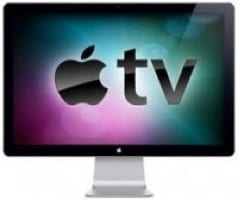In a note to clients — as noted by AppleInsider — Piper Jaffray analyst Travis Jakel says Apple has hired Nick Thompson, formerly the lead audio engineer for Microsoft’s HoloLens augmented reality project. Piper Jaffray analyst Gene Munster, thinks this is further evidence that the company likely has an internal team working on potential augmented reality (AR) projects.

“We believe AR audio is often thought of as not important or secondary to the experience, however, we believe positional audio is what sells the experience and convinces the user there is a real object in front of you or behind you,” Munster wrote. “The ability to re-create sound coming from a distinct location and changes based on proximity and direction of the object should not be overlooked.”
Augmented reality (AR) is a live direct or indirect view of a physical, real-world environment whose elements are supplemented by computer-generated sensory input such as sound, video, graphics or GPS data. In other words, a view of reality is modified by a computer.
Here’s how Thompson’s HoloLens work is described on his LinkedIn page: “Audio hardware development, architecture, electrical and acoustic engineering for groundbreaking wearable consumer electronics device. Initially as an individual contributor, from July 2014 as the manager of the growing team that is implementing the audio hardware from the SOC through to the I/O for the audio paths of the device. Responsibility for acoustics, delivery of EE subsystem and management of suppliers, electrical verification of audio subsystem and acoustic verification.”
Microsoft describes HoloLens as the “first fully untethered, see-through holographic computer” for a “mixed reality” experience. In other words, it mixes holograms with real world views.
This isn’t the first time Apple has been connected with AR reports. In May Apple purchased Metaio, a company makes Metaio Creator, an ARauthoring tool. Metaio says it allows for quick and easy creation and deployment of AR scenarios that are based on the latest tracking technologies. You can create your own AR scenarios within minutes, the company adds.

This is not the first time talk of original Apple programming has popped up. In a Seeking Alpha op-ed in April, author Steve Mallas said it’s for Apple to consider making movies and television shows, entering into competition with companies like Disney and Netflix.
Mallas’ points were:
° Apple must find ways of investing its cash (it has a market cap well over US$700 billion), so why not make movies and TV programming?
° Apple could use quality shows and movies to make its Apple TV platform more valuable. “… content is extremely important and basically helps to define and power a platform in the first place,” he writes. “There is a connection between Apple’s DNA and storytelling. Look no further than Pixar. Steve Jobs helped build that company and brand into a powerhouse animation studio. Disney eventually had to own it.”
Mallas points out that there’s “incredible risk to investing in storytelling, but Apple might increase shareholder value over time by exposure to entertainment.” “Shareholders may not like such a proposal for Apple for two very important reasons,” he says. “First, it’s hard to quantify the risk of content production – a faster processor speed has more inarguable value than a movie about zombies fighting vampires. Second, transparency in the field of movie economics is nonexistent.”
I think he has some valid points. However, I don’t think there’s any way Apple can compete with Disney in content creation (nor would it want to, since Disney and Apple seem to have a very amiable relationship). And creating its own original content wouldn’t prevent it from offering Netflix (or Hulu or Amazon) channels on the Apple TV.
This reminds me of a point I’ve raised previously. In a 2013 article for Pajiba, Steve Lloyd Wilson said that Netflix could democratize television by becoming the “white knight” that rescues beloved TV series canned by the networks. But why not Apple instead?
Netflix got tons of publicity — and accolades — for its revival of the short-lived-but-critically-acclaimed comedy, Arrested Development. And folks are hoping that Netflix will revive other shows that died before their time.
Here’s Wilson’s clever proposal (which you can read in its entirety here): “Netflix should form a little working group of accountants, lawyers, pollsters, and maybe even an entertainment expert or two. Then this group should make a list of every television show cancelled in the last decade, and do a very specific and detailed write up of it. How much would it cost to produce per episode? What are the salaries of creative people involved? In other words, do the legwork that produces an estimate of what it will take to make this happen.
“Then make a Kickstarter page for every single one of those television shows, with a special twist to it. Make all the research completely transparent and right on the donation page. Give fans a line-by-line description of exactly what money would be needed and why.”
Interesting, eh? But what if Apple were to jump in this space before Netflix and offer original programming a la the iTunes Store?
Or take it one step further: what if it offered an iTunes Channel that does same thing as Wilson proposed for Netflix — and more? Just imagine the excitement were Apple to release an actual television that came with original programming.
Imagine an iTunes Channel — or even a section on the iTunes Store where you could buy or rent original programming –with new episodes of Firefly, Alcatraz or — a wild dream of mine — Nowhere Man. Or, as recommended by Bryan Wolfe at App Advice) imagine Apple working Disney’s Pixar to create original children’s programming only available on Apple devices.
I’d definitely be in. Would you?
